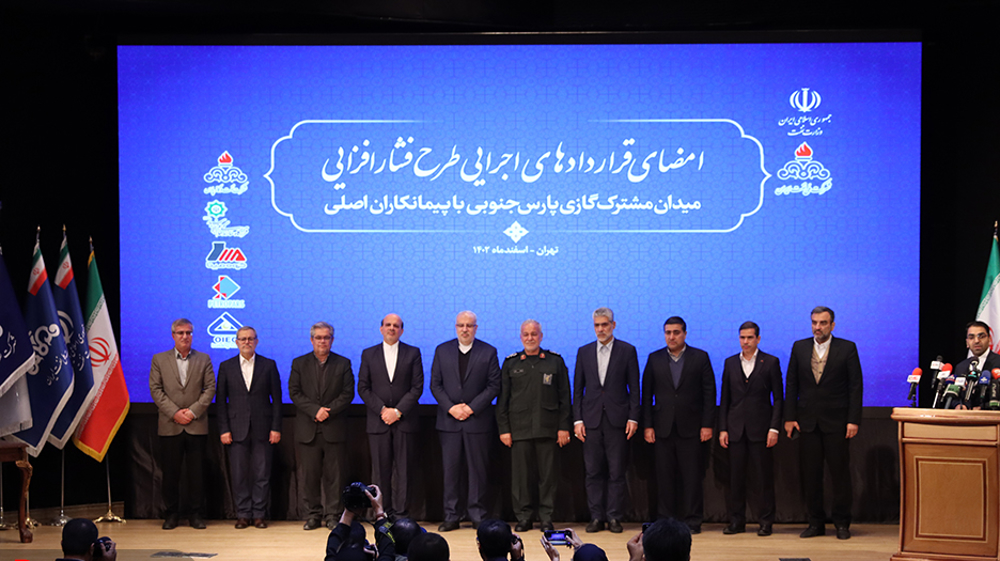Iranian companies have signed contracts worth $20 billion to boost gas pressure at the giant South Pars (SP) field in the Persian Gulf, in a plan which is expected to generate $900 billion in revenue.
This is the most strategic project in the history of Iran’s oil and gas industry and its long-sought empowerment of domestic entities, under which 90 trillion cubic feet of gas and two billion barrels of gas condensates will be available for use.
Top Iranian companies Petropars, Oil Industries Engineering and Construction (OIEC), Khatam al-Anbiya Construction Headquarters, MAPNA Group, and a consulting company are the contractors of the megaproject.
They inked the contracts in Tehran on Sunday in a ceremony attended by Minister of Petroleum Javad Owji and National Iranian Oil Company (NIOC) Managing Director Mohsen Khojastehmehr.
The world’s biggest gas field is shared between Iran and Qatar which is also installing platforms to boost pressure in the field.
The massive project has created an opportunity to kickstart economic prosperity and employment in the face of sanctions. It has also allowed Iranian producers and companies to proactively engage in the economic growth and industrial development of the country and neutralize the sanctions.
Inattention to domestic companies in various sectors in the past and overreliance on foreign expertise and knowhow undermined their growth and expansion, but the accruing exponential costs on a macro level cascaded on the country which found itself in the lurch for the execution of major projects as foreign firms withdrew in the face of sanctions.
This is while the Iranian companies had always proven their mettle through shouldering grave responsibilities in the most difficult times from eight years of the war on Iran in the 1980s to unfair Western sanctions imposed intermittently since the Islamic Revolution in 1970.
If domestic companies are trusted and engaged in industrial projects, not only will it provide an opportunity to take advantage of their power, capacity and experience, but it will also protect and generate jobs and help achieve the high economic goals of the country.
Every project ceded to domestic companies means providing employment for a number of young people and professionals in the country. This is especially important in provinces such as Khuzestan, where employment does not match the capacities and facilities available in the region.
Therefore, supporting domestic companies – which, of course, does not mean financial support, but giving them a share in industrial projects – will have an irreplaceable effect in the country’s economic growth, job creation, national production jump, economic prosperity and neutralization of sanctions.
Domestic companies, if supported and trusted, can dispense us from the need to foreign firms and provide for their growth and expansion, enabling them to undertake projects overseas and win honor for the region.
While sanctions have forced the governing bodies to change their attitude towards domestic companies and entrust them with tasks which normally they would have not, it should be noted that Iranian producers are not perennial supporters of sanctions. Rather, they would like to interact and acquire world-class technologies from foreign companies to empower themselves.
In sum, many Iranian companies have the ability to produce the equipment needed for projects with the lowest cost and the highest quality and provide it to the applicants, provided that officials continue to put their trust in their capabilities both during the times of sanctions and in their absence.




